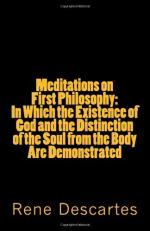Sect. Xcii. A Prayer to God.
O my God, if so many men do not discover Thee in this great spectacle Thou givest them of all Nature, it is not because Thou art far from any of us. Every one of us feels Thee, as it were, with his hand; but the senses, and the passions they raise, take up all the attention of our minds. Thus, O Lord, Thy light shines in darkness; but darkness is so thick and gloomy that it does not admit the beams of Thy light. Thou appearest everywhere; and everywhere unattentive mortals neglect to perceive Thee. All Nature speaks of Thee and resounds with Thy holy name; but she speaks to deaf men, whose deafness proceeds from the noise and clutter they make to stun themselves. Thou art near and within them; but they are fugitive, and wandering, as it were, out of themselves. They would find Thee, O Sweet Light, O Eternal Beauty, ever old and ever young, O Fountain of Chaste Delights, O Pure and Happy Life of all who live truly, should they look for Thee within themselves. But the impious lose Thee only by losing themselves. Alas! Thy very gifts, which should show them the hand from whence they flow, amuse them to such a degree as to hinder them from perceiving it. They live by Thee, and yet they live without thinking on Thee; or, rather, they die by the Fountain of Life for want of quenching their drought in that vivifying stream; for what greater death can there be than not to know Thee, O Lord? They fall asleep in Thy soft and paternal bosom, and, full of the deceitful dreams by which they are tossed in their sleep, they are insensible of the powerful hand that supports them. If Thou wert a barren, impotent, and inanimate body, like a flower that fades away, a river that runs, a house that decays and falls to ruin, a picture that is but a collection of colours to strike the imagination, or a useless metal that glisters—they would perceive Thee, and fondly ascribe to Thee the power of giving them some pleasure, although in reality pleasure cannot proceed from inanimate beings, which are themselves void and incapable of it, but only from Thee alone, the true spring of all joy. If therefore Thou wert but a lumpish, frail, and inanimate being, a mass without any virtue or power, a shadow of a being, Thy vain fantastic nature would busy their vanity, and be a proper object to entertain their mean and brutish thoughts. But because Thou art too intimately within them, and they never at home, Thou




